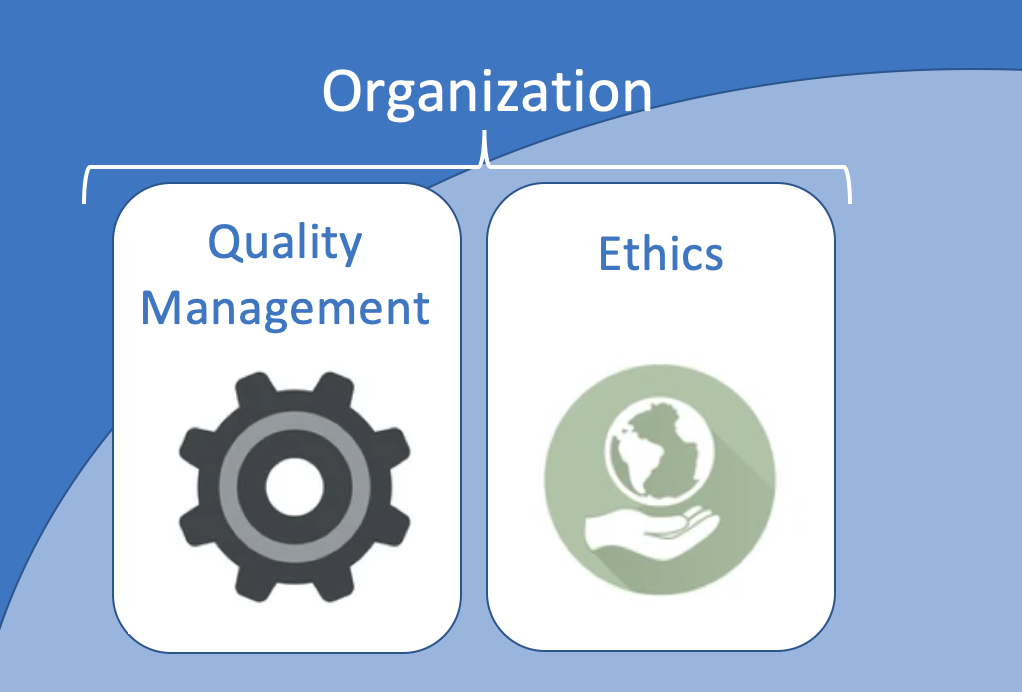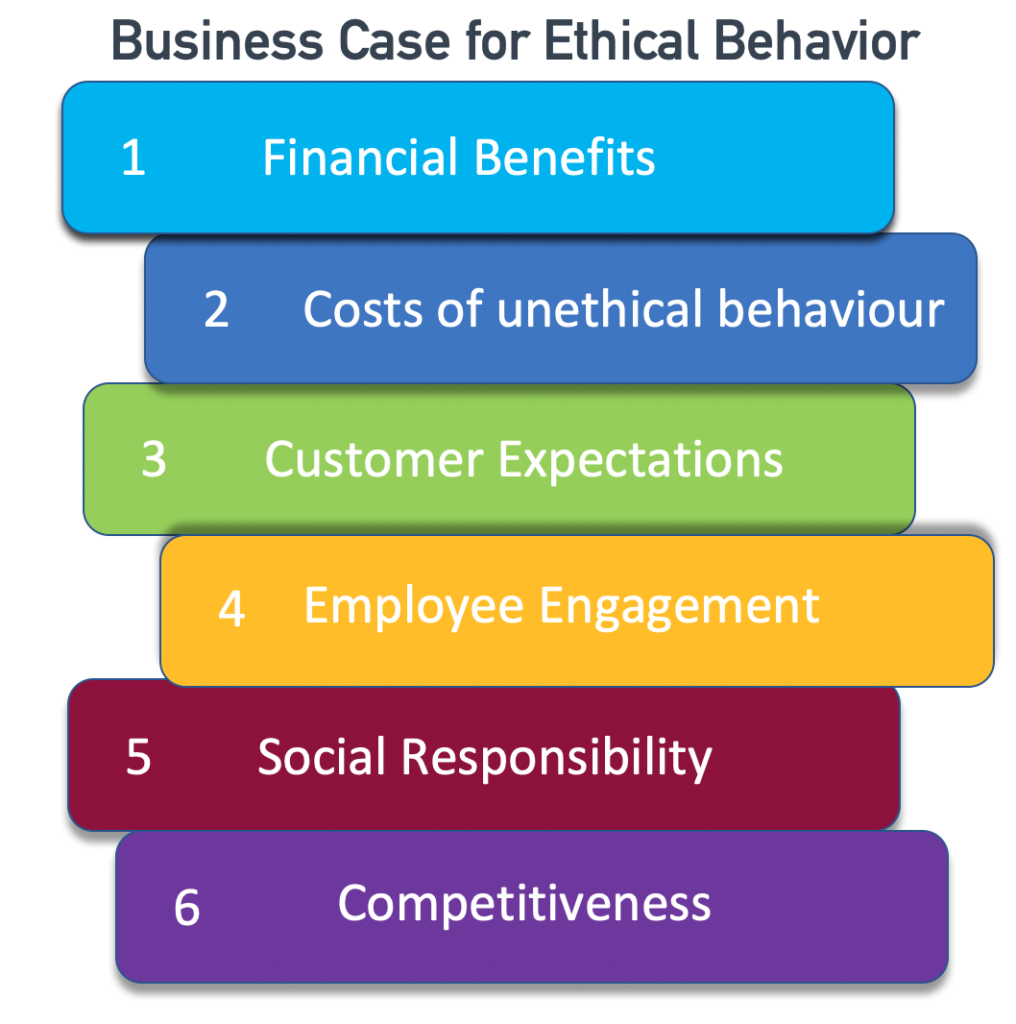
Ethics and Quality management are closely intertwined methodologies which contribute to an organization’s ability to achieve excellence in both the context of production processes and customer and stakeholder expectations.
We can summarise these frameworks as follows:
- Quality Management – a methodology that ensures an organization’s processes and products meet customer expectations while ensuring efficiency and effectiveness within its operations.
- Ethics – standards and expectations that influence how an organization conducts its operations (these include factors such as morals, values and principles.
Both of these factors have a significant influence on how an organization operates, how it produces its products and customer perception.
In today’s article, we’ll be looking at ethics and quality management; we’ll be assessing:
- What are ethics and quality management?
- What is the relationship between Quality and ethics?
- Implications of ethics for quality management
- Ethical issues when using data from quality management programs
- ISO Standards that apply to ethics
- Ethical considerations when using data from Quality Management Programs
- Examples of Quality and ethics?
- Do you need Ethics for Quality Management
What are ethics and quality management?
Businesses place considerable focus on producing products that attract customers within their market.
Considerable focus is also applied in ensuring the processes that lead to the production of these products are effective, efficient and low cost. Many of these activities describe what we see as day-to-day Quality Management.
However, Quality Management alone is insufficient.
Customers have a range of expectations driven by issues such as transparency, innovation, and sustainability. These issues can include a wide range of topics, from how the organization manufactures its goods, to how it treats its supply chain to how it interacts with its surrounding community. Some of these issues may represent global views, and some may represent issues pertaining to the culture where the business operates.
These considerations relate directly to how a business is configured and therefore has a direct relationship with quality management.
For example, customers are likely to have expectations around:
- Personalization or experiences tailored to their own requirements,
- Transparency of operations (labour, materials etc.),
- Participation in recognized initiatives such as sustainability
- Simplicity of transaction
As we described in our introduction, Quality Management offers a methodical approach to structuring an organization’s activities in order to provide products that meet customer requirements and expectations.
These activities can include establishing standards, processes, controls and improvement for all aspects of a business, from design to delivery and customer service.
Quality Management ultimately ensures customers receive high-quality products and services while ensuring the business.
- Meets customer expectations
- Is efficient and effective
- Is compliant with specifications and standards.
As a result, we can see how these two methodologies are closely aligned and intertwine when executing business operations.

Viewed together, they represent a framework that delivers organizational excellence.
What is the relationship between Quality and ethics?
The relationship between Quality and Ethics can be expressed in two distinct ways
1/ Common characteristics
- Doing the right thing
- Striving for Excellence
- Compliance against standards
- Focus on customer
2/ Processes and mechanisms
- Communication
- Principles
- Quality
- Accountability
- Safety
- Control
Quality and Ethics are complementary and act in harmony when helping businesses create a successful customer-centred organization.
They are mutually compatible, and one does not have to be undertaken to the detriment of the other.
Implications of ethics for quality management
As we’ve described, ethics plays a significant role in the world of Quality Management, and as a result, there are various implications for businesses.
These include:
- Customer satisfaction, while traditional quality management might focus on meeting technical specifications, customers also have a range of other ethical requirements. For example, where sustainability is important, Quality Management must consider these aspects when building its management system and devising processes and systems and delivering products and services.
- Employees – Ethical treatment of staff is vital and should be part of the base framework of the company.
- Supply Chain – Equiping supply chain functions with processes that consider ethics when establishing approved suppliers is crucial. This can cover a myriad of characteristics, from payment terms, sustainable activities, avoiding unethical practices (such as slavery) in low-cost countries etc.
- Risk Management – Ethics has a crucial role in risk management, guiding the risk process in a way that is transparent whilst balancing the pros and cons of potential actions in a way that upholds certain principles (such as accountability)
- Compliance – an ethical approach to compliance is important in order to comply with certain standards and legislation.
ISO standards that apply to ethics
Unsurprisingly given how we’ve described ethics and Quality Management being so intertwined, there are various ISO standards where ethics plays an important role; these include
- ISO 37001:2016 – Anti-bribery management systems
- ISO 26000:2010 – Guidance on social responsibility:
- ISO 31000:2018 – Risk management
- ISO 22301:2019 – Security and Resilience
We’d also make a strong case for ISO 9001 to be also considered as it describes approaches and structures which, by their very nature, require consideration regarding the application of ethics within the business management system.
Ethical considerations when using data from quality management programs
A key task of a quality management function is to assess and improve processes and systems.
These often rely on data obtained from the business, which is used to understand problems and help devise improvements.
There are numerous ethics-related considerations which are required when undertaking this activity – this includes:
- Confidentiality
- Privacy
- Bias
- Consent
- Data accuracy and ownership
- Intellectual Property
- Data security
As a result, it is essential that ethics are taken into account when considering how quality initiatives will use company data. In certain counties, this is supported by legislation.
Examples of Quality and Ethics?
So far, we’ve described how ethical considerations should be applied when considering quality frameworks.
Now let’s see how these are applied in the real world with some examples where Quality and Ethics work together.
- Ethical Sourcing – Many modern fashion houses prioritize ethics within their supply chains. This could be through the use of sustainable materials or levels of wages for staff. Such criteria should be supported by appropriate quality management processes (supplier selection, management, audit, for example).
- Fairtrade – such as Fairtrade coffee demonstrates how ethics and Quality collaborate to produce a high-quality product supported by ethical business practices.
- Application of corporate responsibility – Operating around several key characteristics (including environmental, human rights and economic responsibility.) Corporate responsibility aims to ensure that businesses assess the impacts of their systems, processes and decisions on society and the environment through appropriate ethical behaviour
Do you need ethics for quality management?
Whilst there is nothing stopping an organization from not considering ethics when looking to improve its business (save for legislative requirements), the application of ethics provides a means of ensuring activities are conducted in a responsible and transparent manner.

The implications of failing to take ethics into account can have repercussions which include:
- Risk of legal issues where businesses are not compliant with legal issues
- Damage to brand – for example, customers may move to another brand if it considers a business uses exploitative processes when managing its supply chain.
- Employee engagement – failing to have ethical business practices can have severe ramifications for employee engagement. This might include high levels of attrition to the emergence of whistleblowers that might make customers aware of unethical processes.
- Impacts on the working environment and conditions – practices that neglect ethical considerations regarding working practices may not only impact the wider environment (through pollution and waste) but may cause actual harm to employees and stakeholders through poor health and safety.
Summary
As we’ve discussed, Ethics and Quality are closely intertwined.
Businesses need to carefully consider the application of both when designing processes and systems that deliver products and services.
Ethics not only provides a framework for responsible decision-making that ensures that quality management practices are conducted in a socially responsible manner but is also a critical component of compliance and meeting legislative requirements.
As a result, there are key aspects to consider when developing your Quality management system in order to avoid damage to the company’s reputation and, at worst legal issues.
Fundamentally organizations have a duty of care that extends well beyond the product and services it produces but also includes its impact on the wider community and the stakeholders that it interacts with.
We’d love to hear how your organization integrates ethics into its quality systems; perhaps you’ve got some learning that you’d like to share with our readers; as ever, you can reach out on Twitter or via the comments section below.
